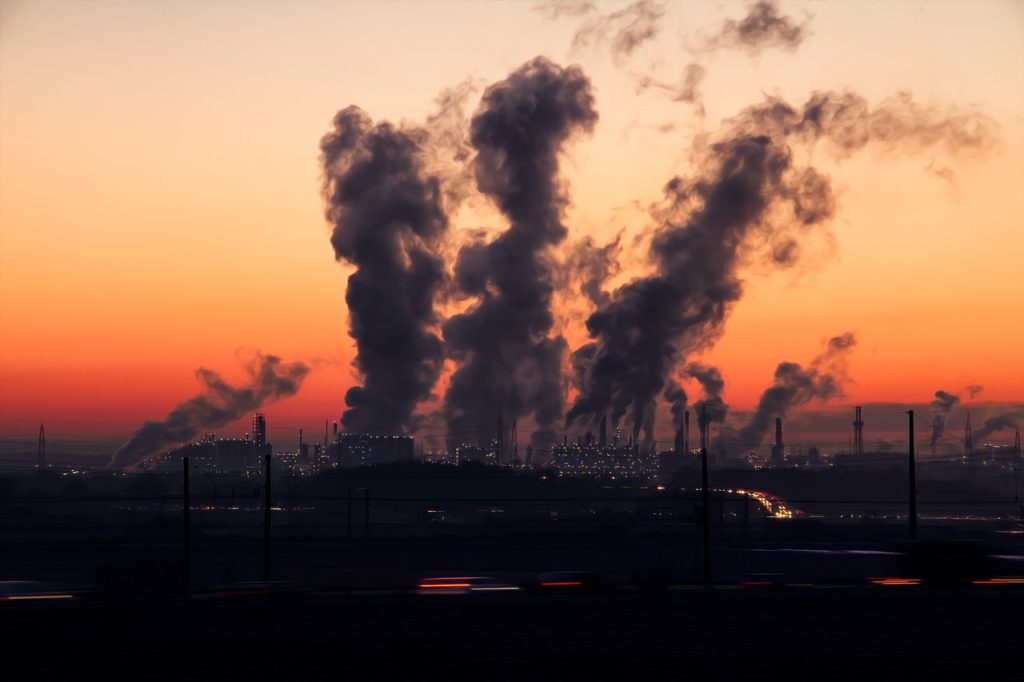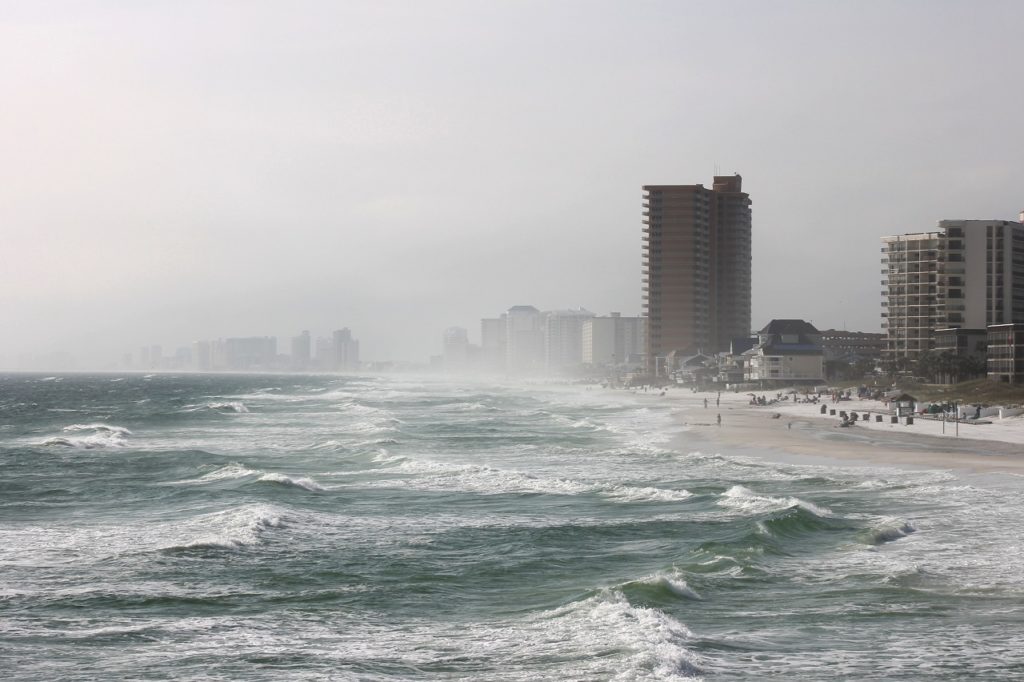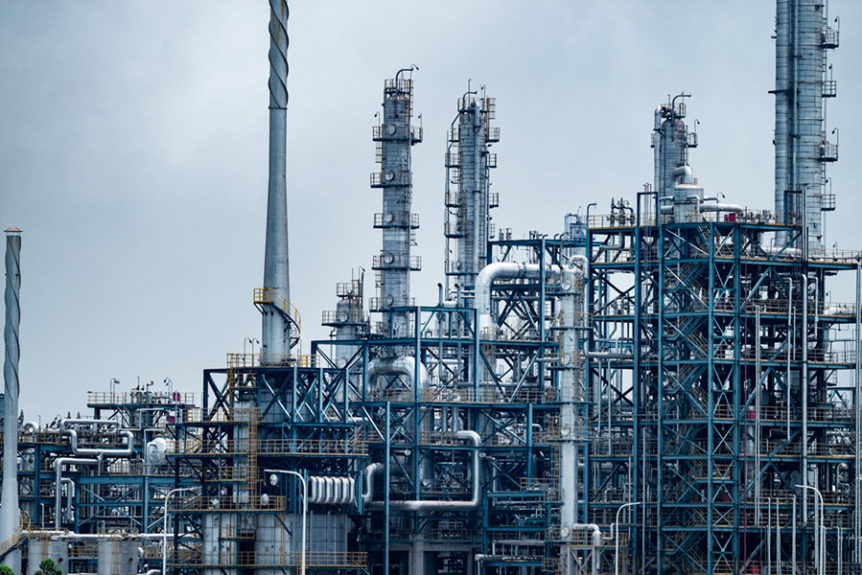Any place where hydrocarbons, natural gas, or volatile chemicals are processed, stored or used carries with it a high risk for explosions if something goes wrong. Nonetheless, chemical releases, plant explosions, and fires are entirely preventable if petrochemical companies comply with the statutory safety procedures and regulations.
More often than not, if you examine companies involved in chemical plant explosions, you’ll likely find that they’ve had a history of circumventing Occupational Safety and Health Administration (OSHA) guidelines. If you or a loved one were involved in a chemical plant accident, pursuing a negligence claim against the guilty party can be a long, arduous battle.
It requires the skills and expertise of experienced plant explosion lawyers with the uncanny ability to deconstruct the events leading up to a catastrophe and establishing the duty of care. This is what ultimately determines who is responsible for ensuring that nothing goes wrong.
This article explores a timeline of the major Texas chemical plant explosions, starting with the most recent, and their respective legal ramifications.
[BREAKING] December 23, 2021 – ExxonMobil Baytown Refinery Explosion
As the largest oil refinery in the United States, ExxonMobil’s refinery in Baytown, Texas has also had numerous fires and explosions.
At approximately 1 a.m. on December 23, 2021, a huge explosion rocked the Baytown complex and surrounding areas. Initial reports indicated that the explosion and fire occurred in the gasoline production area of the refinery complex. While all personnel were accounted for, four refinery workers were severely injured in the fire and hospitalized.
The cause of the explosion and fire are still under investigation, but the incident follows a long string of prior serious safety incidents and lawsuits against ExxonMobil for numerous environmental and safety infractions.
[This is a breaking story and will be updated as investigations on the cause of this incident continue.]
November 2019 – TPC Houston Chemical Plant Explosion – Port Neches
Explosions rocked the TPC Group-owned Port Neches chemical plant releasing more than 1,000 pounds of butadiene into the atmosphere and over 500 pounds of particulate matter. The facility manufactures petrochemicals like 1, 3 butadiene, which is known to be a highly flammable compound.
Port Neches has previously been fined multiple times by the US Environmental Protection Agency (EPA) and the Texas Commission on Environmental Quality (TCEQ) for violating air pollution emission limits. According to state data, the facility surpassed the emission caps indicated on government-issued permits approximately 70 times in the past decade and six times in 2019.
While the exact cause of the explosion is still under investigation, emergency response officials on the site indicated that the source could be traced to a processing unit in the facility that held butadiene. The chemical is a colorless gas that is known to be carcinogenic to humans. According to the EPA website, Port Neches was ranked a high priority violator of the existing federal clean air laws for more than two years in a row.
September 2019 – Celanese Corporation Pasadena Plant Explosion
Emergency crews arrived at the scene after fire and explosions erupted at the Celanese Corporation chemical plant in Pasadena. Emergency personnel employed by the company managed to quell the flames swiftly in the incident that occurred at the company’s Clear Lake Plant. There were no injuries reported, and no shelter-in-place directive was issued.
July 2019 – Baytown Plant Explosion
The Exxon Mobil plant explosion in Baytown sent a plume of smoke billowing over the Houston area. While no fatalities were reported in the incident, 37 people were left nursing burn-injuries, although no one had to be hospitalized. The fire is reported to have first broken out in the area used to purify propylene – a compound used as a fuel and in the manufacture of plastics.

Harris County filed a lawsuit against the petrochemical company alleging gross environmental violations that stem from a fire that broke out at the same facility earlier in the year. Exxon’s three Baytown plants have been cited repeatedly for multiple violations of regulations, albeit with limited consequences.
According to data from the EPA, the state fined Exxon $3.8 million in 2018 after investigations revealed that the company was not properly monitoring or operating flares at their facilities in Texas and Louisiana.
Environment Texas, an environmental advocacy organization, sued Exxon’s three Baytown area plants for being among the biggest polluters in the Houston area. A US District Judge ordered the company to pay an estimated $20 million as the outcome of the litigation.
May 2019 – Kuraray America Eval Texas Chemical Plant Explosion
Close to two dozen people sustained minor injuries after a valve-malfunction caused a fire and explosion at a Pasadena chemical plant in Bay Area Boulevard. The company specializes in manufacturing ethylene vinyl-alcohol copolymers. The fire was extinguished a short while later, and no shelter-in-place directive was issued. The plant has had no prior health and chemical safety violations.
April 2019 – Crosby Chemical Plant Explosion
This became the third major chemical plant explosion Crosby, TX, that occurred in the Houston Metro Region in 2019. The KMCO plant explosion caused a massive fire which was triggered by the ignition of isobutylene gas. Thousands of pounds of potentially toxic chemicals were released into the air forcing the nearby community to shelter-in-place for the better part of the day.
The accident led to one fatality and critically injured two employees. While the region is well-known for housing some of the largest concentration of petrochemical storage and processing facilities, it is not uncommon for occasional accidents to occur.
However, the frequency with which the three explosions happened and in such proximity to each other reveals serious gaps in regulatory oversight. The major concerns associated with any chemical plant explosion is that exposure to the toxic fumes released into the atmosphere in smoke plumes have the potential to cause serious health problems to area residents both in the short and long term.
March 18, 2019 – Deer Park Plant Explosion
On the morning of St. Patrick’s Day, two massive tanks caught fire at the ITC Deer Park petrochemical plant located roughly 15 miles southeast of Houston, TX. The fire spread to other neighboring storage tanks, which were still ablaze many days after the fire first broke out. The flames were contained more than three days later.
While no one died in the accident, at least 20 people sustained injuries as a direct result of the plant explosion. A week later, plant workers and Houston residents reported experiencing breathing issues, burning throats, itchy eyes, nose bleeds, and headaches.
The symptoms are consistent with respiratory issues brought on by toluene, naphtha, and xylene, which were the chemicals housed at the plant used in the manufacture of gasoline. These chemicals have been scientifically linked to the onset of health problems like brain damage, kidney issues, liver problems and cancer in the long term.
ITC also acknowledged that the explosion might have resulted in these chemicals getting washed into the nearby Houston ship channel which links Houston to the Gulf of Mexico. The company encouraged all who had suffered injuries or losses resulting from the fire to participate in its compensation program.
However, the claim form indicates that individuals who receive compensation from ITC effectively waive their rights to recover any other form of damages they may have suffered as a result of the explosion. These include medical expenses and/or lost wages. This means that anyone who receives monetary compensation of any amount is barred from filing a lawsuit in the future should they develop health complications further down the line as a result of the fire.
Texas Sues ITC

The state of Texas filed a lawsuit on behalf of the Texas Commission on Environmental Quality (TCEQ) for violating the Texas Clean Air Act, given the air pollution released during the fires that burned for several days. The state seeks civil penalties as well as a permanent injunction to hold the petrochemical company liable for the damage it caused to the environment. The Texas Attorney General stated that the company had displayed a long history of environmental violations and would therefore not be allowed to continue to put public health and safety at risk.
March 16, 2019 – Baytown Complex Plant Explosion Houston
A fire broke out at a plant refinery at ExxonMobil Complex in Baytown. Although the fire was put out a couple of hours later, Harris County officials allege that it continued to release toxic pollutants for at least eight more days. They accuse the petrochemical company of violating the federal Clean Air Act, to which end they filed a lawsuit to hold them accountable for their gross negligence.
March 2018 – Cresson Chemical Plant Explosion
One person was killed, and two others were injured after an explosion and a large fire erupted at a Tri-Chem Industries plant 25 miles southwest of Fort Worth. Witnesses allege that the explosion was ignited when a worker dragged their feet on the door while highly volatile chemicals were being mixed.
The family of the deceased victim, alongside one of the injured victims, filed a lawsuit in which they named Tri-Chem, Access Chemicals, TR International Trading Company, and Dongying Shengya Chemical Co. as the defendants in the suit.
August 2017 – Arkema Chemical Plant Explosion
Two explosions rocked the Arkema chemical plant in Crosby, TX, after Hurricane Harvey caused a power blackout at the plant that lasted for days. Since the backup generators also failed, there was no power to sustain the coolant system to subdue the volatile chemicals produced onsite.

Some of these included sulfur dioxide and methylpropene. If these two compounds don’t remain cool, they naturally degrade and combust. No fatalities or injuries were reported in the explosion.
April 2013 – West Texas Fertilizer Plant Explosion
The massive explosion and fire that broke out at the West Fertilizer Company plant left roughly 35 people dead, including 10 emergency responders who first arrived at the scene. 160 other individuals were critically injured in the explosion that was ruled one of the worst disasters in Texas history.
The cause of the blast was due to the presence of the highly volatile ammonium nitrate. However, an investigation by the Federal Bureau of Alcohol, Tobacco, Firearms, and Explosives revealed that the fires that had preceded the explosion on that fateful day had been intentionally set and would treat the incident as a criminal act. The blast left behind a 10 feet deep crater measuring 93 feet wide and damaged hundreds of homes, including a 50-unit apartment complex, a nursing home, and three schools.
The City of West filed a lawsuit against West Fertilizer Co. seeking damages and alleging negligence in the way they stored the ammonium nitrate. CF Industries – the company which supplied the volatile agricultural grade fertilizer was also named in the suit.
March 2005 – Texas City Plant Explosion
The BP Texas City Refinery explosion of 2005 will be remembered as one of the most notable cases of failure by a high-profile multinational company to protect the health and safety of its employees. It was the worst plant explosion in US history.
On that fateful day, company employees embarked on a particularly dangerous procedure that involved restarting a unit that was previously down for repair. The process involved filling up the tower with gasoline, which then began to overflow. The excess gas flowed into a back-up unit which also overflowed sending a geyser of gasoline into the air.
It ignited and set off the infamous gas plant explosion killing 15 workers and severely injuring at least 170 others. The daughter of two plant workers who were among those who died in the accident sued the company for the death of her parents. She initially sought damages amounting to $1.2 billion but later settled for an undisclosed amount along with $32 million donated to various causes chosen by her.
BP accepted full responsibility for the catastrophe and settled more than 1,000 lawsuits related to those who were injured, family members of the victims, and those who suffered shock from the blast. The company spent well over $1.6 billion to settle the claims. Federal authorities fined BP more than $21 million for violating more than 300 safety regulations that contributed to the Texas plant explosion.
Hold Negligent Parties Accountable
A chemical plant explosion can occur for a variety of reasons. It could start as a small fire that grows out of control or a small leak that’s ignited by a spark. The chemicals in these facilities are usually highly flammable, so it’s relatively easy for an explosion to get out of control in a matter of minutes.
As a result, severe burn injuries, bone fractures, and fatalities are not uncommon in such events. If you’ve been affected by a chemical plant explosion today or in the past, consult with an experienced personal injury attorney to help you get the compensation you deserve. Don’t wait. Act now.
If you have more legal questions, you can also chat online with a Laws101.com attorney, where you’ll be instantly connected to a lawyer who can give you legal guidance on your specific case or question.
